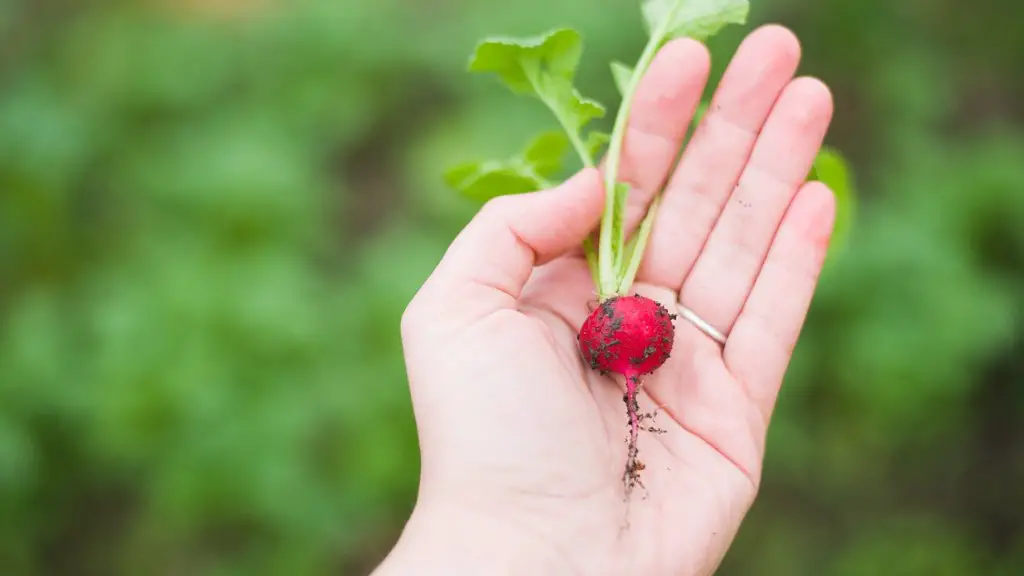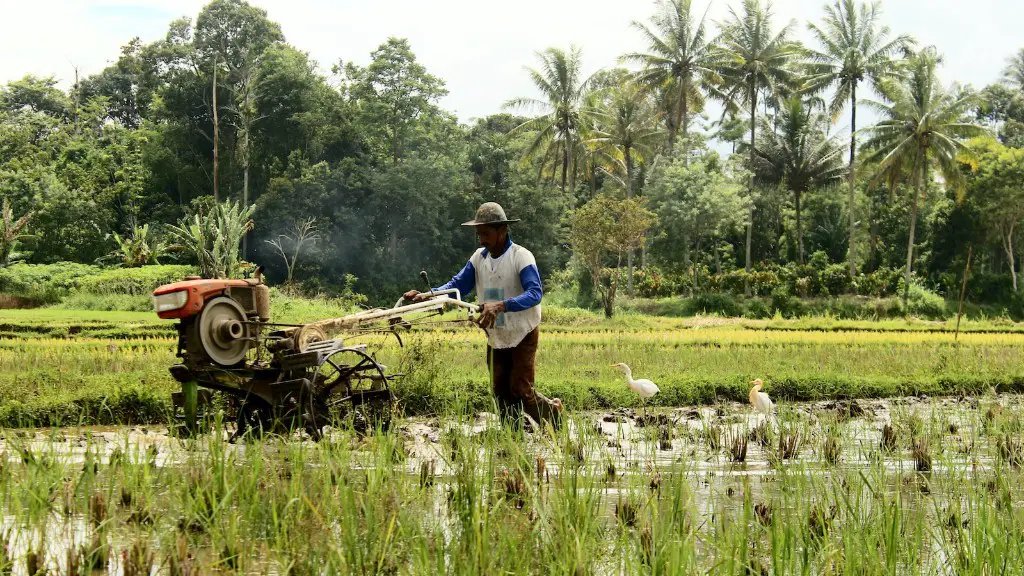A recession is defined as a significant decline in economic activity spread across the economy, lasting more than a few months. During a recession, agriculture is affected by both direct and indirect factors. Direct factors include a decrease in demand for agricultural goods, which leads to lower prices and income for farmers. Indirect factors include an increase in the price of inputs, such as fuel and fertilizer, which raises the cost of production. Additionally, a recession can lead to a decrease in consumer confidence, which reduces demand for all goods, including agricultural products.
A recession can have a number of different effects on the agricultural sector. One of the most direct effects is a decrease in demand for agricultural products. This can lead to lower prices for farmers and ultimately lower incomes. Another effect of a recession is an increase in the cost of inputs such as fuel and fertilizers. This can further reduce farmers’ profits. Additionally, a recession can lead to a decrease in the availability of credit, which can make it difficult for farmers to finance their operations.
What happens to agriculture during a recession?
While it is true that the agriculture sector does not typically experience the same level of decline during a recession as other sectors, there are still some effects that are felt. For example, farmers may see a decrease in demand for their products, as consumers cut back on spending. Additionally, the cost of inputs such as fuel and fertilizer may increase, putting additional pressure on margins. In general, however, the agriculture sector is more insulated from economic downturns than most other sectors.
The world economic crisis that began in 2008 has major consequences for US agriculture. The weakening of global demand because of emerging recessions and declining economic growth result in reduced export demand and lower agricultural commodity prices, compared with those in 2008. This, in turn, reduces farm income and profitability and creates financial stress for farmers and ranchers. The crisis also affects the agricultural input sector, as farmers and ranchers reduce their purchases of inputs such as fertilizer, seed, and machinery. The combination of these factors is likely to lead to consolidation in the agricultural sector and fewer farmers and ranchers in the United States.
Is recession good for farmers
Farmers in the United States have an opportunity to capitalize on the higher demand for food commodities as other countries continue to turn to the US to offset their own shortages. Historically, farms have tended to do well during economic downturns, and this is likely to continue. However, farmers will need to be aware of the potential for volatile markets and prices, and plan accordingly.
A recession can have a silver lining for those looking to buy or build a home. Land and construction costs could drop, making it a more affordable time to get into the housing market. However, it’s important to be aware of the potential risks involved in taking on a mortgage during an economic downturn. Speak with a financial advisor to learn more about what to expect during a recession and how it could impact your homebuying plans.
What thrives during a recession?
The industries that are known to fare better during recessions are those that supply the population with essentials that we cannot live without. These industries include utilities, health care, consumer staples, and, in some pundits’ opinions, maybe even technology.
It is important to remember that no company or industry is 100% safe from an economic crisis or recession. While some industries are very susceptible to economic changes, other sectors tend to perform well during recessions. However, it is still possible for companies in these sectors to experience difficulties during a recession. Therefore, it is important for companies to be aware of the risks and to prepare for the possibility of a recession.
What were the 3 most significant effects of the recession of 2008?
The Great Recession was a global financial crisis that affected economies around the world. In all the countries affected by the Great Recession, recovery was slow and uneven. The broader social consequences of the downturn, including lower fertility rates, historically high levels of student debt, and diminished job prospects among young adults, were expected to linger for many years.
The farm crisis of the 1980s was the result of a confluence of many things, including failed policy, mountains of debt, and land and commodity price booms and busts. Two droughts, one in 1983 and the other in 1988, exacerbated the situation, and farmers who were in the wrong place at the wrong time were crushed.
Which industry was most impacted by the 2008 Great recession
Construction and manufacturing experienced sizable dips in employment during the Great Recession, which lasted from 2007 to 2009, according to data from the Bureau of Labor Statistics. The riskiest industries to work in during an economic downturn include: real estate, construction, manufacturing, retail, leisure and hospitality.
The COVID-19 pandemic has had a significant impact on many industries across the globe. Some of the industries that have been most affected include retail, restaurants, travel/tourism, leisure/hospitality, service purveyors, real estate, and manufacturing/warehousing. Many businesses in these industries have been forced to shut down temporarily or permanently, and many workers have lost their jobs. The pandemic has also resulted in a decrease in demand for many products and services, which has further impacted these industries.
What sector does best in a recession?
There are some industries that remain essential even amid an economic downturn, such as healthcare, freight and food. Regardless of whether or not income drops, people will still need many of the same things, but they may choose to get them from cheaper sources in the event of a recession. For example, people may choose to eat out less often and cook at home more, or they may buy cheaper brands of food.
A recession can be a difficult time for businesses and investors alike. However, there are certain types of investments that tend to do well during periods of economic downturn.
Countercyclical stocks, for example, are those that tend to outperform the market during recessionary periods. These are typically well-managed companies with strong balance sheets and low levels of debt.
Investing in these types of companies can be a smart strategy during a recession, as they are likely to experienceprice appreciation despite the prevailing economic conditions.
Is it best to buy land during a recession
The good news is that a recession can be a great time to purchase land for long-term investing. This is because the value of land is sure to rise when the recession is over, making it a more predictable and less risky investment than stocks and other more volatile investments. For example, if you purchase land during a recession and the economy recovers within two years, the value of your land is likely to increase significantly. However, if you purchase stocks during a recession, you may not see the same level of return on your investment for several years, if at all. Therefore, purchasing land during a recession can be a great way to ensure a good return on your investment.
The key point here is that people with access to cash are in a better position to invest during a recession. By doing so, they can improve their financial standing significantly in the long term. This is an important consideration for anyone looking to make the most of their money.
Is it best to buy property in a recession?
Mortgage rates are typically lower during a recession as lenders reduce rates to entice people into buying homes. This is because it is cheaper to secure a mortgage during a recession, thus helping to boost the economy.
The retail industry is one of the most affected industries by recession. The main reason for this is because people spend less money when the economy is bad. This means that stores have to make cuts in order to stay afloat. One way that retail stores can stay open during a recession is by reducing inventory and expenses. Another way to stay open is by offering sales and discounts. This will attract customers who are looking for a bargain. Finally, retail stores can stay open by diversifying their products and services. This means offering items that are not normally associated with the store. For example, a clothing store may start selling home goods.
What businesses boom in a recession
It’s no secret that businesses in the home improvement contracting, auto repair, childcare and accounting industries do well in a recession. Most consumers deem these services as essential and will keep spending their money on them, rather than wait for better economic conditions.
There are a few reasons why these businesses do so well in tough economic times. For one, people are less likely to move homes or buy new cars during a recession, so they’ll spend more money repairing and maintaining the ones they have. Additionally, families are often more reluctant to travel during a recession, which means they’re more likely to spend money on their children’s education and activities. And finally, people are generally more careful with their money during a recession, so they’re more likely to use the services of a accountant to help them save and manage their finances.
So if you’re looking for a recession-proof business, one of these industries is a good place to start.
1. Invest as much as you can in the stock market.
2. Protect your income by diversifying your sources of income.
3. Cut back on your expenses to free up more money to invest.
Final Words
A recession is typically defined as two consecutive quarters of negative economic growth, as measured by a country’s gross domestic product (GDP). A recession generally has a ripple effect on different sectors of the economy, and agriculture is typically one of the sectors most affected. During a recession, consumer spending generally declines, as people become more cautious with their money. This can lead to a decrease in demand for agricultural products, as people purchase less food and other agricultural products. This decrease in demand can lead to a decline in prices for agricultural products, which can in turn lead to a decline in farmers’ incomes. Additionally, during a recession, businesses may cut back on their investment in agriculture, leading to a decline in agricultural productivity.
A recession is defined as a significant decline in economic activity over a period of time. A recession can affect agriculture in a number of ways. For example, a decrease in demand for goods and services can lead to a decrease in farm income. Farm businesses may be forced to downsize or even close their doors. This can lead to a loss of jobs in the agricultural sector and a decrease in the availability of food.





